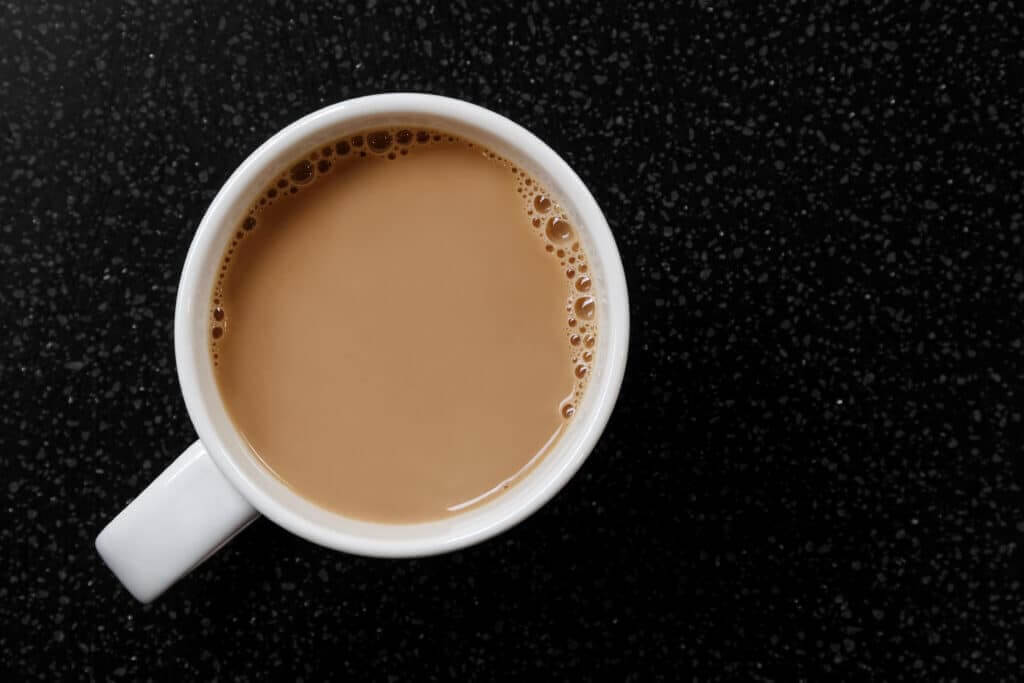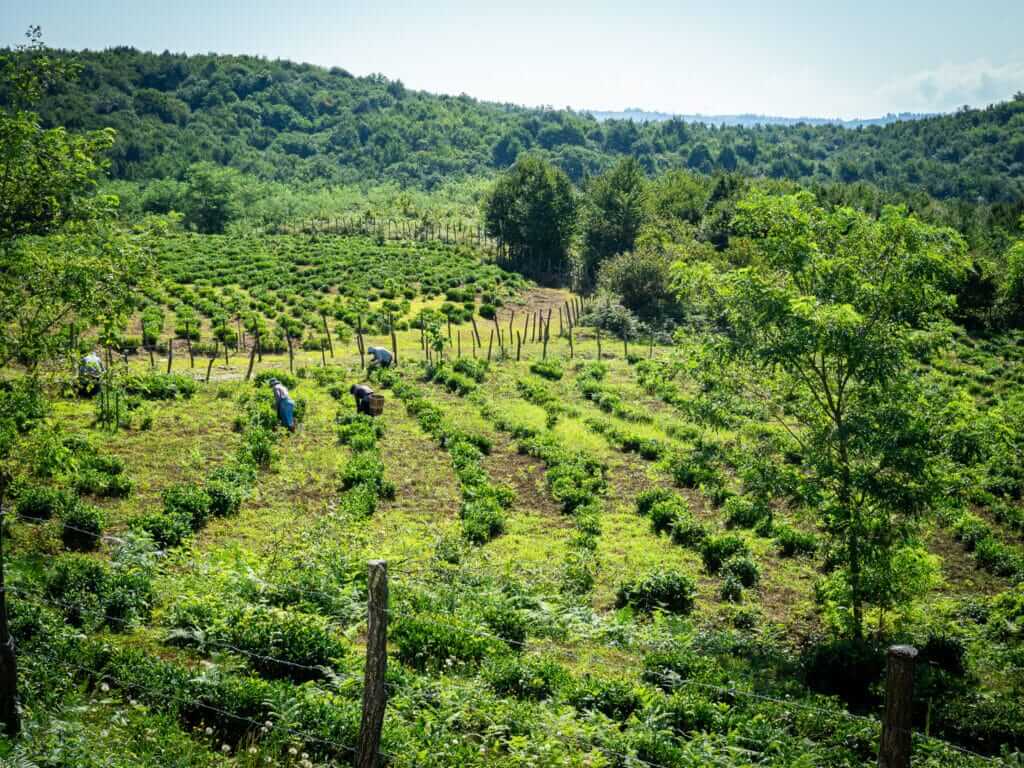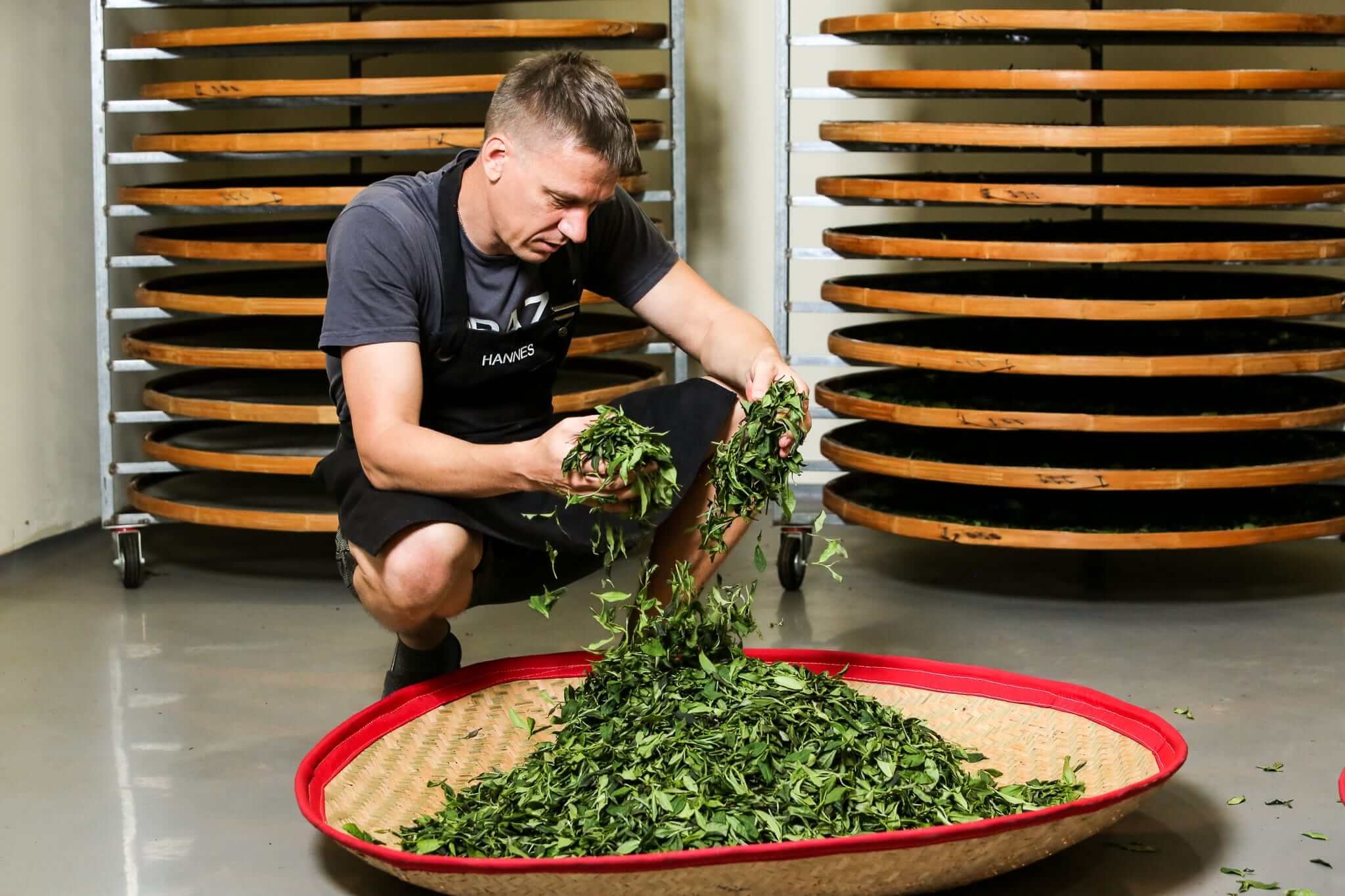The British drink more than 100 million cups of tea every day, yet only a tiny fraction is organic, comes direct from the farmer and provides producers with decent wages. It doesn’t help that tea is particularly inexpensive in the UK; we treat our favourite beverage like fast food. Yet there are a number of growers who are trying to change our attitude, one cup at a time.
Mostly bagged, mostly black tea and washed out with milk: our taste buds have been dulled down and so has our appreciation for what is an infinitely varied brew, derived from a highly labour-intensive crop with equally high production costs. Yet, try and source a high quality, single estate tea and enjoy it in a tea house that revels in the ritual of this complex beverage and you will be hard pushed to find more than a handful of spots in the UK.
Even though we’ve been drinking the steeped leaves of Camellia sinensis – its Latin moniker – for over 350 years, our addiction has become narrowed to an on-the-go, quick, cheap, one-dip wonder, channelled through multinational companies, supermarkets and global supply chains, while most of our faded tea rooms serve over-brewed, dust-filled bags of English breakfast, decanted from scalding urns.

“The issue with us Brits is that we think we know tea. Yet there is so much to it that we need to rediscover,” explains Jo Harper, co-founder of the Dartmoor Estate Tea in south Devon. He produces 10,000 cups of tea a year, on 13 acres of red, acidic Devon soil that is organically farmed (but uncertified).
“Those who planted vineyards in Kent were laughed at in the 1970s; look at where we are today – producing award-winning tipples from the Garden of England,” says Harper, who believes there are similarities with tea. “We’re living in the past when it comes to this brew. Yet as one of the world’s biggest per-capita tea drinkers, there’s so much room for more discerning consumption. We need to start to think about tea differently.”
Tee up your direct supplier
Buying direct from a tea farm is a start. This gives money directly to growers. Online shops such as the Rare Tea Company and Comins Tea source tea straight from farms and do so transparently. This is increasingly important after studies have exposed the human cost of growing tea from India to Africa and the abject poverty, as well as poor working conditions, that many plantation workers endure.
A 2019 study by Oxfam found that 50 per cent of households lived below the poverty line in 50 Assam tea estates in India, supplying tea brands and supermarkets internationally. Kenyan pickers are still suing one Scottish tea company over poor working conditions. An International Labour Organisation study in 2020 found that, globally, average tea wages are far below average country wages and lower than the average wages paid in the agricultural sector.
Greater transparency from the major tea brands is a start. The world’s first searchable tea plantation database was launched a couple of years ago by the Business and Human Rights Resource Centre, with Twinings, Yorkshire Tea and M&S among those to disclose their supply chain lists. This could eventually help provide better wages for workers yet still provide an affordable cuppa’.
Newcomers are thriving
“It’s hard to educate consumers, especially when we all love a cheap cup of tea and there’s a cost-of-living crisis. But we can look to the coffee industry and chocolate brands like Tony’s Chocolonely to see how change is possible,” states Amy Jones, marketing manager at Renegade Tea in Georgia.
Renegade Tea is just that: a renegade tea farm in Georgia’s Caucasus mountains, abandoned at the fall of the Soviet Union and now reclaimed from the bracken. Like Dartmoor Estate Tea, it has only been in production for a couple of years. But this 100 acres or so of land, four hours’ drive from the capital Tbilisi, is thriving once again and supplies direct to consumers with a range of black, green, white, oolong and herbal teas.

“It’s the closest region to the UK that has ideal conditions for growing tea. This has the advantage of cutting shipping emissions. Georgian tea also has a different flavour profile compared to say Sri Lankan or Indian. Because we have cold winters here, our tea season only lasts five months,” says Jones.
“In January and February, our fields are often covered in snow. This creates a different, sweeter flavour profile and also makes it very easy for us to grow organically. The cold weather kills pests naturally in Georgia, whereas these are a big problem in other tea growing regions where tea bushes are usually treated with agrochemicals.”
Excessive applications of artificial fertilisers in traditional tea plantations are common. Pesticide residues found in tea samples from China and India were disturbingly above safe limits set by the WHO, according to a study by Greenpeace.
As Jones puts it: “It’s ultimately down to choice; the tea industry around the world needs change. There’s definitely more tea brands today sourcing and selling directly from farms than there was a decade ago. Hopefully newcomers to the market will help raise the tide for everyone.”
She continues: “But it’s not easy to change habits and opinions, especially when the market is so saturated. An important aspect could be opening more tea shops where people can try loose leaf teas before they commit to buying. The coffee market did this well and now almost every town seems to have speciality coffee and a roastery.”
Is it time for a cup of informed tea with a conscience in an ethical tearoom? Only time will tell.









0 Comments